Heatwave conditions have hit southern Europe early this year with Greece sweltering in high temperatures in the first weeks of June. Spain, Italy and Turkey have also seen extreme heat with wildfire incidents in the high temperatures. For locals this has been unusual, but with climate change, perhaps not unexpected. Life adapts with schools closing temporarily, people taking shelter in the main heat of the day and perhaps a slower rhythm until the worst of the extreme weather passes.
There have been numerous reports about tourists succumbing to the heat, including the tragic news about Dr Michael Mosley, the British television presenter who died on the Greek island of Symi. Several foreigners have died or are still missing in Greece, many having headed out for a hike. A German man was found dead on Crete, a Dutch tourist died on Samos and an American tourist also perished on a small island west of Corfu.
Here in the UK, parts of Wales and England have just experienced official heatwave conditions when temperatures rise above 25-28C for three consecutive days. The thresholds vary by location. This heat is now fading and although it will have been uncomfortable for some and a concern for others, it is not near to our UK top temperature of 40.3C from July 2022. Other folk will have enjoyed the very warm weather as a welcome taste of summer.
When people head off on holiday, the severity of the heat in other parts of Europe can come as a shock. Like a wall of heat that you can’t escape inside or out, by day or night. That has been the case already for tourists in Rhodes and other Greek Islands. Also, in Italy and Switzerland, until violent thunderstorms broke the oppressive conditions. Germany has had heatwave warnings along with the risk of severe thunderstorms as the Euro 2024 football tournament continues.
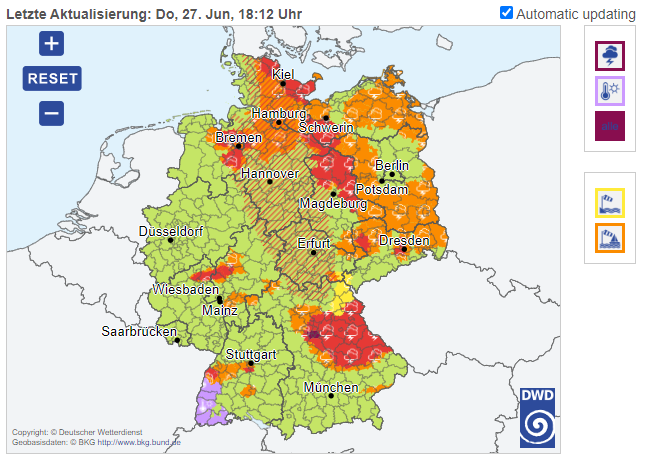
Visitors who regularly walk, hike, jog or cycle at home may give it a go on holiday. Navigating how much the heat will impact your body is a guessing game and as we have seen, a lethal one sometimes. Sedate visitors must also take care, particularly the elderly and those with additional health needs. Medication is prescribed for your usual lifestyle, not the additional strain of excess heat. Similarly for young children, who won’t be sedate, it can be hard to gauge when they are becoming overheated until they become unwell.
If you only have a few days in a destination such as Athens, you may want to keep to a timetable, seeing the sights before moving on. Like with hiking, this can lead to people taking a chance. Being out in conditions that put too much strain on the body, heat being an extra layer of stress. The Greek authorities often close the Acropolis when temperatures are too high, in part not wanting extra demand on local medical services.
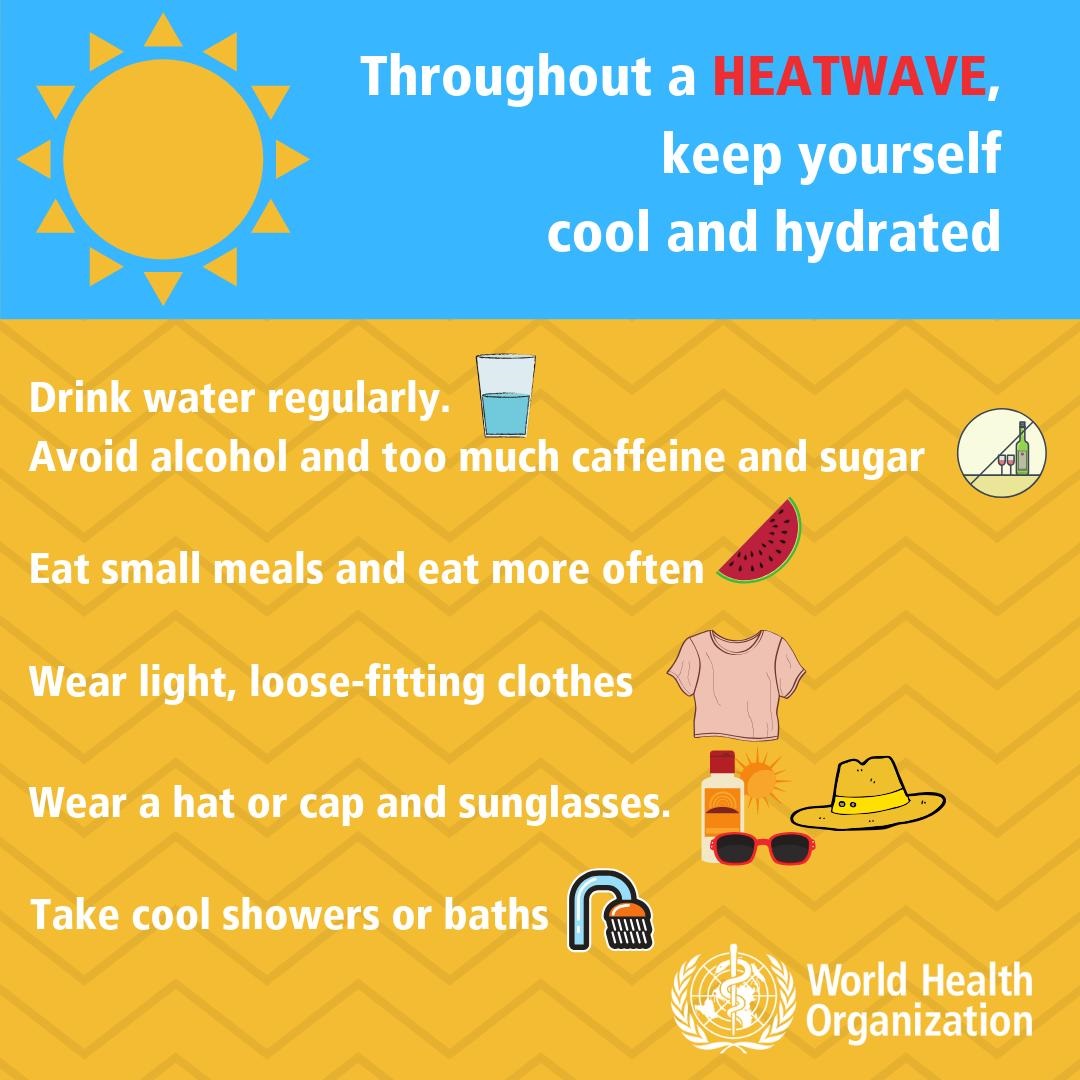
In high temperatures, it is harder for the body to cool itself. Do not under-estimate hot weather, at home or abroad. Wear sunscreen, sunglasses and a brimmed hat or seek shade. Drink plenty of water (and less alcohol/caffeine). Rest (or at least limit physical activity) in the hottest part of the day. Head out earlier or later. Wear light, loose-fitting clothing, not heavy black jeans and a hoodie (teenagers!) but also recognise that a collared shirt/blouse with long sleeves can help protect the skin. Eat ice-cream.
Accommodation
Keep your residence cool by keeping the blinds or curtains closed. Open the windows in the evening and early mornings
“Use electric fans only when temperatures are below 40 ˚C / 104 ˚F. In temperatures above 40 ˚C / 104 ˚F, fans will heat the body.” (WHO Heat and Health 2024) “If using air conditioning, set the thermostat to 27 ˚C / 81 ˚F and turn on an electric fan – this will make the room feel 4 ˚C cooler.” (also saving money on electricity bills).
Remember that it may be cooler outdoors in the shade. If camping, this is certainly the case for lightweight tents, do not be tempted to rest inside, out of sight, in the middle of the day.
Heat Related Conditions
It is helpful to recognise the symptoms of heat-related conditions; heat exhaustion, dehydration and heatstroke.
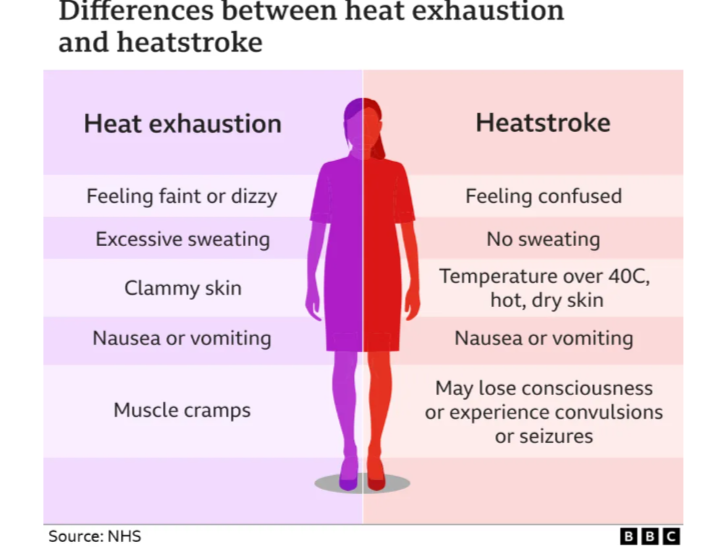
Carry a water bottle and keep it re-filled, just in case. Keep drinking small amounts through the day. Keep bottle of water in the fridge to help cool down. A damp towel or flannel over your face/head or neck can be wonderful. Soaking your feet in a basin of cool water is very refreshing. Take care of your pets if they have travelled with you, dogs can also suffer from heatstroke. Don’t leave anyone or animals in a car, even for a short time. Recognise that each person’s response to the heat of that particular day will be different.
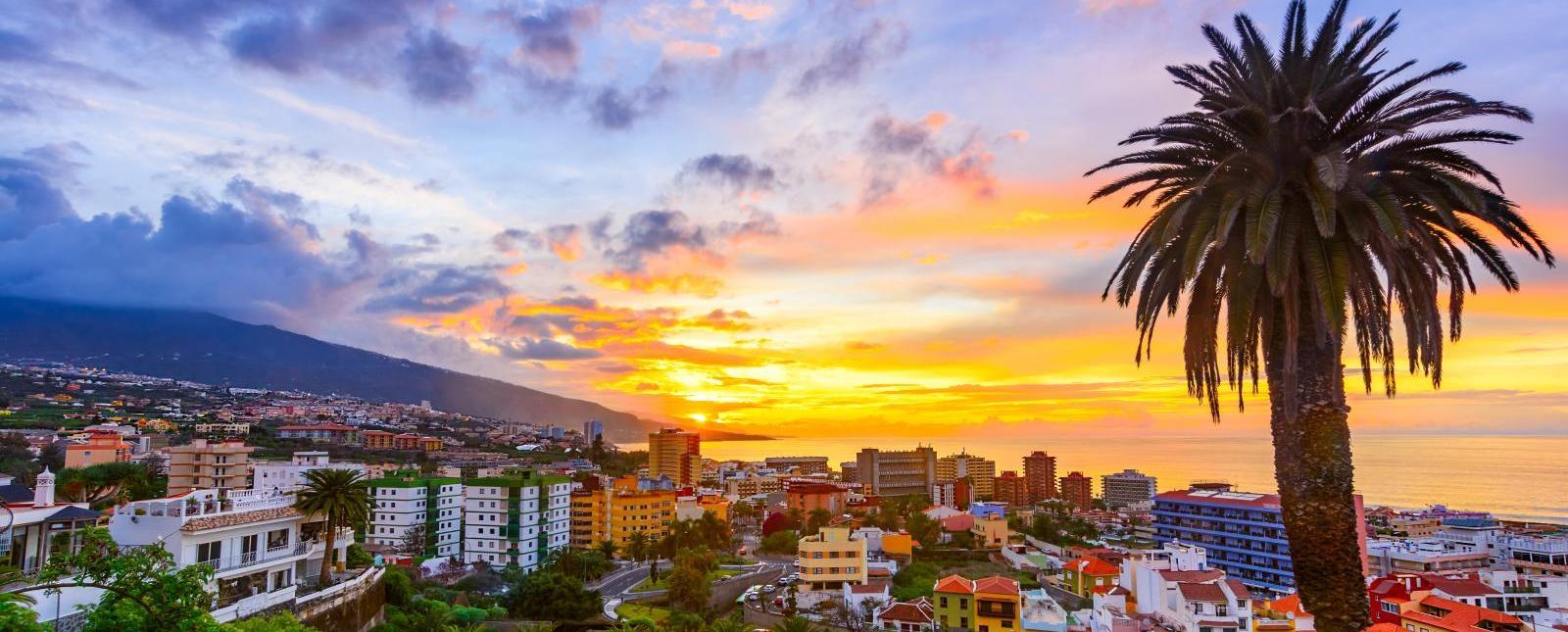
How does heat impact your body?
A person’s internal temperature needs to be regulated and we need to lessen the heat that our body gains. If this doesn’t happen then we are at risk of becoming ill. Trying to cool down puts a strain on the body and stresses the heart and kidneys. If you already have underlying issues, there is already an existing strain and the heat will only heighten it. Chronic conditions such as respiratory illness or diabetes can worsen. View the extra heat as another layer of risk, becoming dehydrated would be one more layer, and physical exertions yet another layer.
Heat stroke is very serious and can result in death. The cumulative effect of several very warm nights can be very draining and raise your core temperature. If you can visit somewhere with air conditioning, it would be a worthwhile outing.
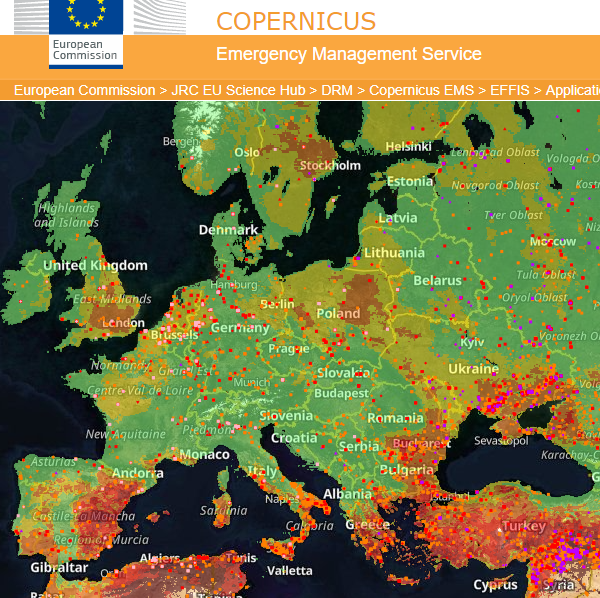
Other issues
Heat is not the only summer problem. Often it is accompanied by wildfires, thunderstorms with flash flooding and sometimes poor air quality. To keep an eye on weather warnings for your resort, take an initial look at Meteo Alarm. This shows the official weather warnings from National Met. Services across Europe and the links to their websites. All now use the traffic light system of yellow, amber, red warnings and often include local radar imagery to see where thunderstorms are occurring.
Enjoy your holidays but respect how intense the heat can be. Slow down, adjust and live like the locals. Siesta, a Mediterranean diet and late dinners will soon seem very attractive.

